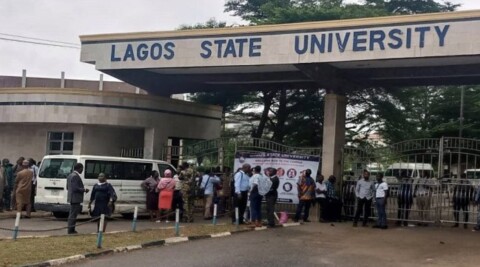The Federal Government has called on the 36 state governments and the Federal Capital Territory (FCT) to take full responsibility for implementing the Universal Basic Education (UBE) programme across the country.
Minister of Education, Dr. Maruf Olatunji Alausa, made this clarification in Abuja, emphasizing that while the UBE programme falls under state jurisdiction, effective implementation requires strong collaboration with relevant agencies to address various challenges in the basic education sector.
He spoke at a three-day meeting of the Universal Basic Education Commission (UBEC) management with executive chairmen of State Universal Basic Education Boards (SUBEBs) from the 36 states and the FCT. The meeting, held on Monday, was themed “Strengthening Collaboration for Quality Basic Education Delivery in Nigeria.”
Highlighting that education falls within the concurrent legislative list and that primary and secondary schools are under the purview of state governments, Alausa urged states to reassess their strategies and explore innovative approaches to improving basic education.
“I encourage you to reevaluate existing strategies and identify new approaches to implementing basic education. This includes exploring alternative funding sources and fostering collaboration to ensure that every Nigerian child receives quality education,” he said.
He assured states of the Federal Government’s continued support in driving reforms within the basic education sub-sector to meet national aspirations.
Represented by his Senior Special Assistant (SSA), Dr. Ismaila Adiatu, the minister reiterated the government’s commitment to tackling the out-of-school children crisis in Nigeria. He also emphasized President Bola Ahmed Tinubu’s administration’s determination to transform education.
According to him, President Tinubu has directed all stakeholders to prioritize returning children to classrooms and reducing the number of out-of-school children.
“The Federal Government is committed to promoting quality education and ensuring a renewed focus on foundational learning, which is crucial to the overall development of the education sector and national progress,” Alausa stated.
He added that the Federal Ministry of Education is working on improving teacher quality, enhancing the learning environment, providing adequate instructional materials, and strengthening quality assurance mechanisms.
To further streamline efforts, he announced that a committee has been set up to categorize schools across Nigeria and identify areas requiring urgent intervention.
The Executive Secretary of UBEC, Hajiya Aisha Garba, emphasized that the gathering reaffirmed the collective commitment to providing quality basic education for all Nigerian children.
“We must prioritize a society-based education system by ensuring effective collaboration at national and state levels, both within the education sector and beyond,” she said.
Garba acknowledged persistent challenges in basic education, including inadequate infrastructure, poor teacher quality, and insufficient learning materials. She urged stakeholders to work together in addressing these issues to create a more inclusive and effective teaching and learning environment.
Speaking on behalf of the SUBEB chairmen, Prof. Adaramaja Shehu congratulated Garba on her appointment and commended her leadership team for their commitment to improving basic education across the country.





